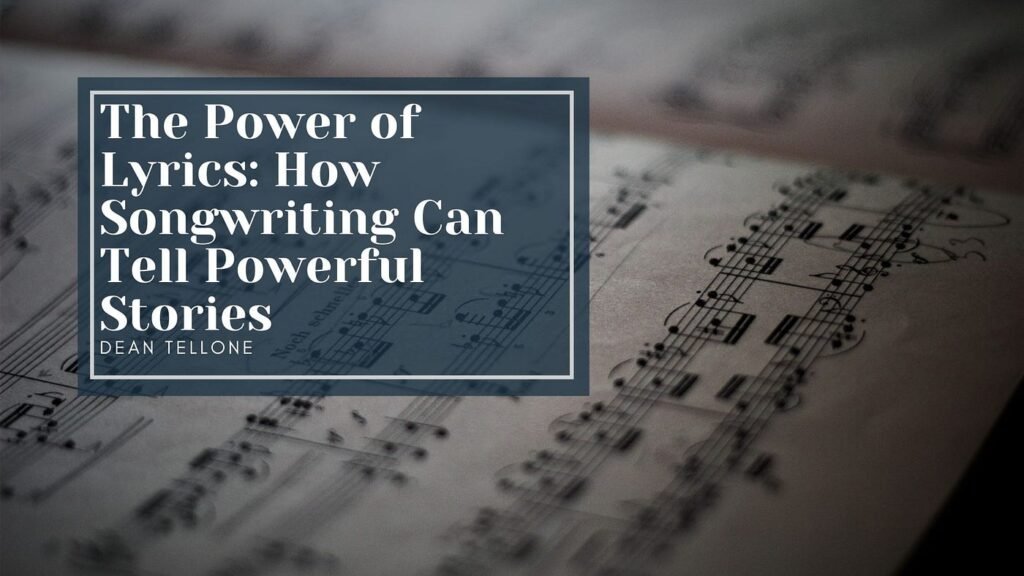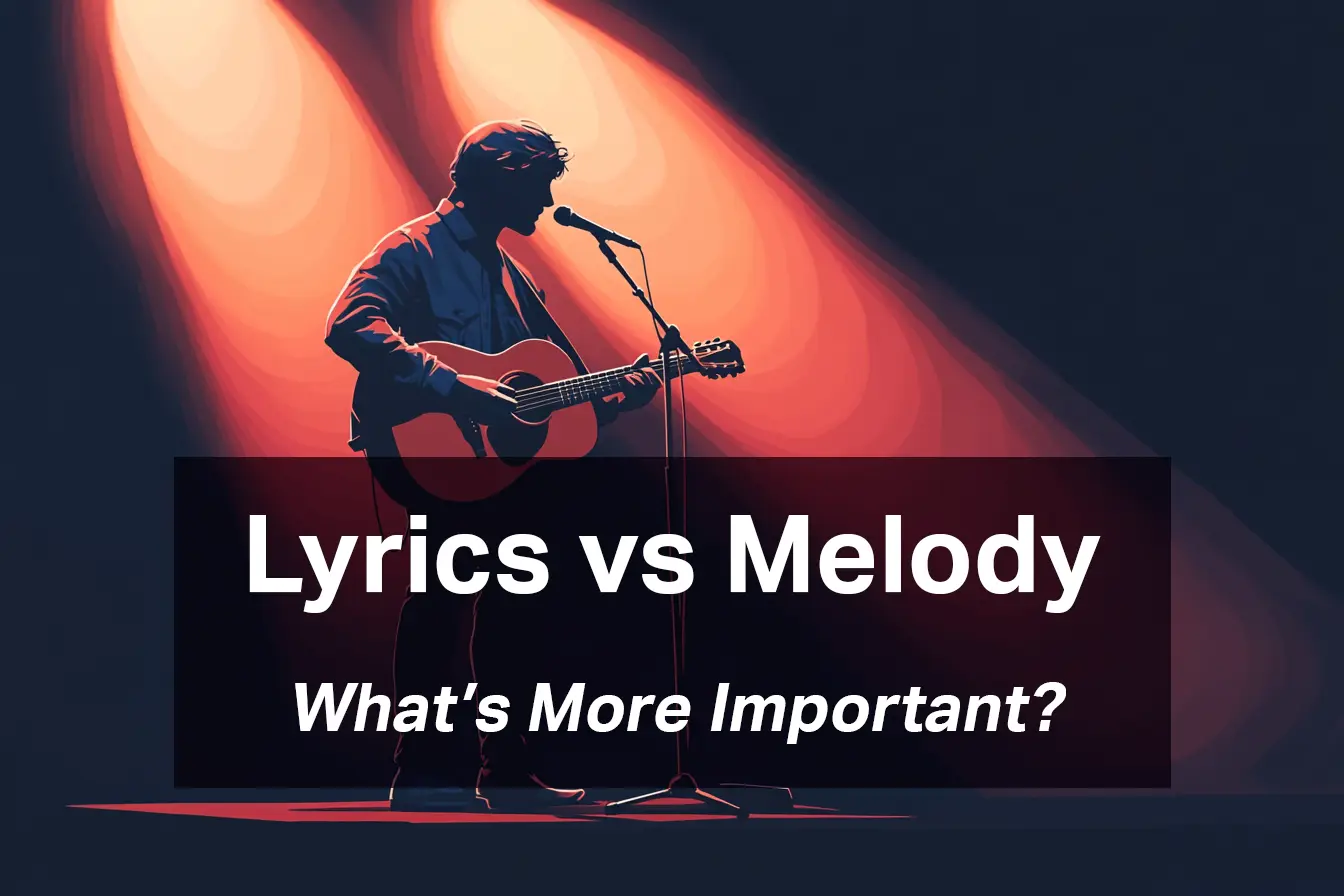The Role of Lyrics in Creating Memorable Music
When we think about a memorable song, the melody often comes to mind first. However, the lyrics play an equally significant role in crafting a song that resonates with listeners long after the music fades. While the melody and rhythm are crucial, it’s the lyrics that give a song depth, meaning, and emotional connection. From storytelling to expression, lyrics are the glue that holds together the musical experience and makes a song unforgettable. In this post, we’ll explore the role of lyrics in creating memorable music and why they are essential in songwriting.
1. Lyrics Bring Emotion to Life
One of the primary roles of lyrics is to evoke emotions. A song can have a beautiful melody and strong rhythm, but without impactful lyrics, it may not have the emotional pull that makes it stand out. Lyrics allow artists to express their thoughts, feelings, and personal experiences in a way that helps listeners connect on a deeper level.
For example, songs about love, heartbreak, or personal struggles often resonate with people because the lyrics mirror their own experiences. Lyrics allow listeners to feel understood, heard, and validated, making the song more impactful.
Example:
Songs like Adele’s “Someone Like You” or John Legend’s “All of Me” connect with listeners emotionally because of the relatable and heartfelt lyrics that touch on love, loss, and vulnerability.
Why it works: Emotionally charged lyrics give a song its soul, transforming a simple tune into a relatable and memorable experience.
Discover Exciting Entertainment Options
For those seeking engaging online games, exploring the best online pokies offers a thrilling way to unwind and enjoy some fun from anywhere.
2. Storytelling Creates a Narrative Connection
Storytelling is a timeless technique that has been used in music for generations. Great lyrics often tell a story, which helps the song feel like more than just a tune. By weaving a compelling narrative, lyrics can capture the imagination and keep the listener hooked. Whether it’s a personal anecdote, a fictional tale, or a reflection on society, a well-crafted story can make a song feel immersive and memorable.
Many classic songs use storytelling to convey a message or theme, whether it’s love, adventure, or social change. The storytelling aspect of lyrics allows the listener to become invested in the song’s journey.
Example:
Johnny Cash’s “A Boy Named Sue” and Bob Dylan’s “The Hurricane” are examples of songs where storytelling is central to the lyrics, drawing listeners in and making them feel like they are experiencing the events firsthand.
Why it works: Storytelling creates a sense of engagement, where listeners are not just hearing a song, but following a narrative, making the song more compelling and memorable.

Explore the Latest Gaming Trends
Johan Christher Schutz’s work highlights innovation and creativity, much like the evolving world of online gaming. For those interested in fresh entertainment options, the new online pokies at au.crazyvegas.com offer exciting gameplay and modern features. These games provide a dynamic experience that complements the forward-thinking spirit seen in creative industries.
3. Lyrics as a Vehicle for Communication
Lyrics serve as the main medium through which songwriters communicate their thoughts and ideas. Through clever wordplay, metaphors, and poignant observations, lyrics can deliver powerful messages that transcend the music itself. A song’s message can range from political statements to personal reflections or universal truths, and the way the lyrics are written can elevate the importance of the song’s content.
The words in a song can make listeners think, challenge their perceptions, or provide comfort. For artists, lyrics are an essential way of conveying their worldview or reflecting the emotions they want to express.
Example:
Public Enemy’s “Fight the Power” and Sam Cooke’s “A Change Is Gonna Come” are examples of songs that communicate strong social messages through their lyrics, which resonate deeply with listeners and leave a lasting impact.
Why it works: Strong, thought-provoking lyrics engage the listener’s intellect, encouraging them to reflect on the deeper meaning of the song.
4. Relatability and Universality
One of the reasons lyrics are such an important aspect of memorable music is their ability to be relatable. Lyrics that reflect universal human experiences—such as love, loss, joy, and fear—connect with a wide audience. When listeners hear lyrics that resonate with their own lives, they feel a bond with the song, making it more likely that they will remember it.
A well-crafted lyric taps into common emotions or experiences that nearly everyone can relate to, creating a sense of solidarity between the artist and the listener.
Example:
The Beatles’ “Hey Jude” and Taylor Swift’s “Shake It Off” are examples of songs with lyrics that resonate with listeners due to their universal themes of overcoming challenges, self-empowerment, and hope.
Why it works: Relatable lyrics forge an emotional connection with listeners, making the song more memorable and meaningful in their lives.
5. Crafting Memorable Hooks and Choruses
A memorable chorus can turn a song into an anthem. Lyrics are a vital part of the chorus, which is often the most repeated and recognized part of the song. A catchy and impactful chorus with strong, emotive lyrics can ensure that a song sticks in the minds of listeners long after they’ve heard it.
The repetition of a powerful lyric in the chorus is often what makes a song unforgettable. These repeated phrases or hooks can create a sense of familiarity and resonance, making the song more likely to be remembered.
Example:
Whitney Houston’s “I Will Always Love You” and Bon Jovi’s “Livin’ on a Prayer” are examples of songs with memorable choruses that rely on powerful, emotional lyrics to make them unforgettable.
Why it works: A strong, emotionally charged chorus creates a sense of unity and repetition, which helps the song stick with the listener and be easily recalled.
6. Symbolism and Imagery
Using imagery and symbolism in lyrics is a powerful tool for songwriters. It allows for deeper layers of meaning, encouraging listeners to interpret the song in their own way. Through metaphors and vivid imagery, lyrics can paint pictures in the listener’s mind, making the song more visually evocative and thought-provoking.
Songs rich in symbolism often invite listeners to uncover hidden meanings, adding depth to the music and creating a more memorable experience.
Example:
Pink Floyd’s “Wish You Were Here” and Joni Mitchell’s “Big Yellow Taxi” use vivid imagery and symbolism in their lyrics to evoke emotional responses and deeper interpretations from listeners.
Why it works: Imagery and symbolism transform a simple lyric into something evocative and multi-dimensional, making the song stand out and remain memorable.
7. Lyrics Help Define an Artist’s Identity
A song’s lyrics play a key role in shaping the identity of the artist. The words an artist chooses to sing often reflect their personality, style, and worldview. Over time, listeners can come to associate certain lyrical themes with specific artists, which adds a layer of recognition and familiarity to their work.
For example, Bob Dylan is often associated with politically charged lyrics, while Taylor Swift is known for her storytelling and relationship-themed songs. These lyrical qualities help define their artistic brands.
Example:
Lorde’s “Royals” and Kendrick Lamar’s “HUMBLE.” are songs that use lyrics to reflect the artist’s persona and views on societal issues, helping listeners connect with them on a deeper level.
Why it works: Lyrics can help establish a signature style or voice for an artist, making them stand out and making their music more memorable.
Casino VIP Login site
Johan Christher Schutz’s platform shares thoughtful perspectives on creativity, culture, and the digital spaces that connect people worldwide.
Engaging with trusted and secure platforms ensures that users can enjoy their online experiences with confidence and peace of mind.
For a reliable example of such a service, you can explore the Casino VIP Login site.
Conclusion
In the world of music, lyrics are the thread that weaves the emotional, narrative, and intellectual fabric of a song. Whether through storytelling, emotional expression, or relatable themes, lyrics are the driving force behind a song’s ability to connect with its audience and remain memorable. The next time you hear a song that sticks with you, remember that it’s not just the melody or the beat that makes it unforgettable—it’s the power of the lyrics. Crafting lyrics that speak to the listener is one of the most important aspects of songwriting, and it’s what transforms music into something that lasts.



